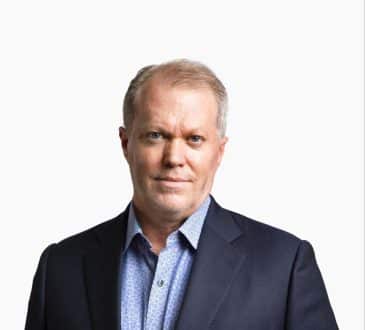What You Should Know About Hedge Funds

A hedge fund is a partnership of private investors managed by professional fund managers who use various strategies to earn high investment returns, including non-traditional assets and leverage. It’s a risky investment choice and typically requires an increased minimum investment or net worth, making it popular among wealthy clients.
Understanding hedge funds
Hedge funds are alternative investment funds that pool money from professional investors and invest it to make a profit. They are managed by institutional investors who use a variety of non-traditional investment strategies to mitigate risk. Hedge funds aim to generate returns in all market conditions. Still, analysis of their performance suggests that they may not be completely immune to market forces.
Types of hedge funds
Hedge funds target select investments and pools of securities primed for gains. Four common types of hedge funds include:
- Global macro hedge funds that try to profit from broad market movements caused by political or economic events,
- Equity hedge funds that can be global or specific to one country and use shorting to hedge against market downturns,
- Relative value hedge funds that exploit temporary price differences in related securities and
- Activist hedge funds invest in businesses and try to boost stock prices through actions such as cost-cutting or changes to the board of directors.
How do hedge funds work?
Hedge funds usually opt for liquid public market investments and employ complex techniques like derivatives and short selling for potentially higher returns. However, their investment strategies are not publicly disclosed, making it challenging to generalize their approach.
What are the different strategies used by hedge funds?
These are some common hedge fund strategies:
- Long/Short Equity: This strategy involves taking both long and short positions in stocks to generate returns based on the relative performance of individual companies.
- Global Macro: This strategy involves investing in various assets based on macroeconomic trends and events, such as changes in interest rates or currency exchange rates.
- Event-Driven: This strategy involves investing in companies undergoing significant corporate events, such as mergers, acquisitions, or bankruptcy, intending to profit from price movements resulting from these events.
- Quantitative: This strategy uses mathematical models and algorithms to identify investment opportunities. These models may analyze various data points, including financial statements, market trends, and economic indicators, to make investment decisions.
What are the Risk and Return Profiles of Hedge Funds?
Due to the complex investment strategies and investments in non-publicly traded assets, hedge funds are considered riskier than traditional investments. Therefore, they are typically only available to accredited investors who meet certain eligibility criteria. While some hedge funds have outperformed traditional investments, investors need to clearly understand the risks involved before investing.
Who should invest in hedge funds?
Minimum investment requirements for hedge funds vary by country and fund-specific requirements. Less regulation for hedge funds means higher risk. Investors should research investment strategy, performance history, and fees and consult a financial advisor before investing to determine if it aligns with their goals and risk tolerance.
How Are Hedge Funds Different from Mutual Funds?
Hedge funds and mutual funds differ in regulation, investment strategies, fees, and accessibility. Mutual funds are highly regulated, invest in a variety of assets, have lower fees, and are available to retail investors. Hedge funds, on the other hand, are less regulated, employ a range of investment strategies, charge higher fees, and are only available to accredited investors. Hedge funds are generally riskier and more complex, while mutual funds are more suitable for diversified, long-term investment strategies.
Have you read?
Why Employers Forcing a Return to Office is Leading to More Worker Power and Unionization by Dr. Gleb Tsipursky.
Want to succeed as a digital entrepreneur? The key is working smarter, not harder by Hemi Hossain.
Pirates, Treasure, & Your Retirement by David C. Bentall.
How to Become Successful in Business By Leaning Into A Community by Alden Mills.
CEOS: Give the Gift of a Peer Group by Leo Bottary.
Add CEOWORLD magazine to your Google News feed.
Follow CEOWORLD magazine headlines on: Google News, LinkedIn, Twitter, and Facebook.
This report/news/ranking/statistics has been prepared only for general guidance on matters of interest and does not constitute professional advice. You should not act upon the information contained in this publication without obtaining specific professional advice. No representation or warranty (express or implied) is given as to the accuracy or completeness of the information contained in this publication, and, to the extent permitted by law, CEOWORLD magazine does not accept or assume any liability, responsibility or duty of care for any consequences of you or anyone else acting, or refraining to act, in reliance on the information contained in this publication or for any decision based on it.
Copyright 2024 The CEOWORLD magazine. All rights reserved. This material (and any extract from it) must not be copied, redistributed or placed on any website, without CEOWORLD magazine' prior written consent. For media queries, please contact: info@ceoworld.biz
SUBSCRIBE NEWSLETTER








